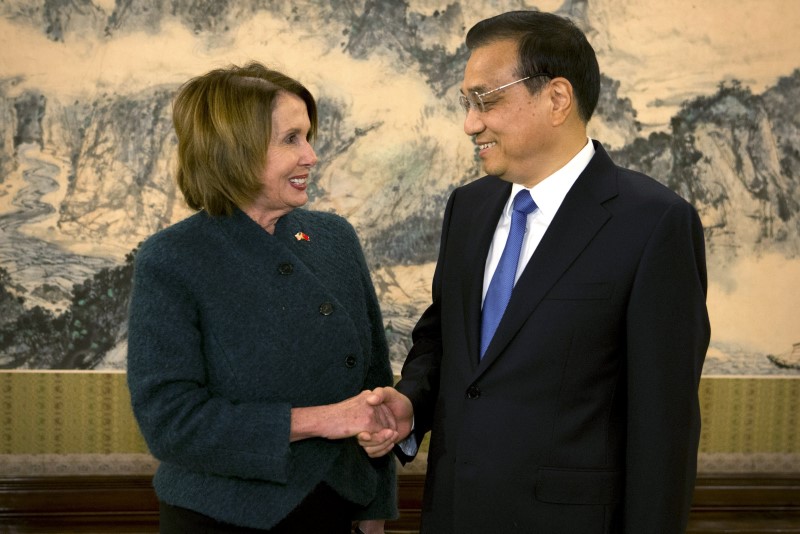SHANGHAI (Reuters) - Tibet's exiled spiritual leader, the Dalai Lama, enjoys strong support in the United States, Democratic leader Nancy Pelosi told Chinese officials during a visit this week to the Himalayan region, while expressing concern about human rights there.
Pelosi, a long-time critic of China's human rights record, was leading a senior U.S. Congressional delegation on a rare visit to Tibet, which China has ruled with an iron fist since 1950, when it was "peacefully liberated" by communist forces.
The delegation met senior government officials, including communist party boss Chen Quanguo, Pelosi said in a statement.
"The delegation reiterated the imperative of respect for religious freedom and expression in Tibet," she added.
"We also conveyed to the Chinese government officials the strong, bipartisan support the Dalai Lama enjoys in the Congress of the United States and among the American people."
The delegation, the first Congressional delegation Chinese authorities have allowed to enter Tibet since widespread unrest in 2008, also expressed concern over the recent arrests and detentions of human rights lawyers and activists in China.
"America has a responsibility to stand up for human rights at home and abroad," said Jim McGovern, the chairman of a Congress Human Rights Commission, who accompanied Pelosi.
"Human rights in China, and Tibet in particular, continue to be an area of grave concern," he said in a statement.
The official Tibet Daily had said Pelosi praised the huge changes that had taken place in Tibet and the hard work of the Chinese government in protecting religious freedom and cultural practices.
China's Foreign Ministry has described the Tibet visit, which was not formally announced ahead of time, as "a normal exchange between the U.S. and Chinese legislatures".
Rights groups and exiles say China tramples on the cultural and religious rights of Tibet's Buddhist people. China denies this, saying it has brought much needed development to what was a backward region.

Pelosi has regularly spoken out about human rights issues in Tibet and has met the Dalai Lama, whom Beijing reviles as a violent separatist. The Nobel peace laureate says he simply wants real autonomy for Tibet.